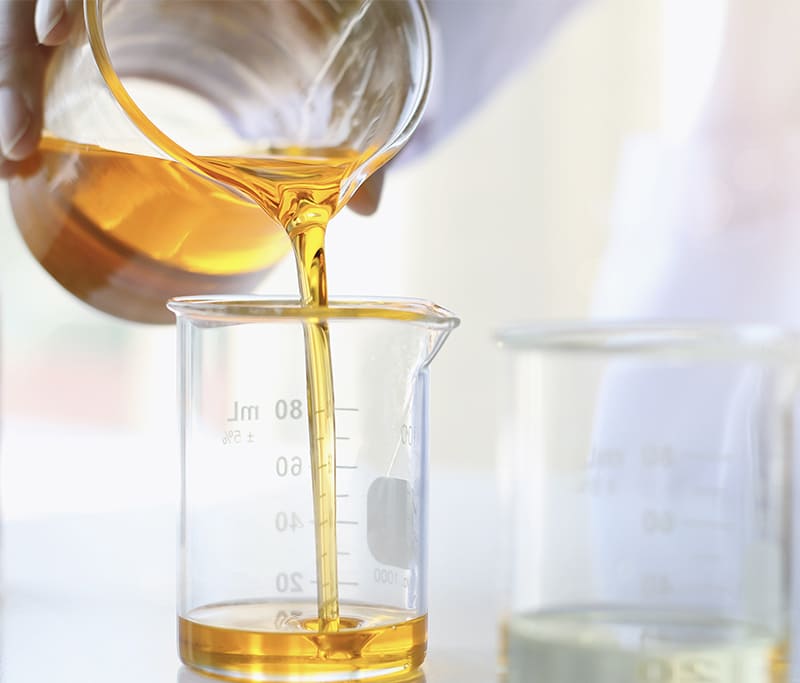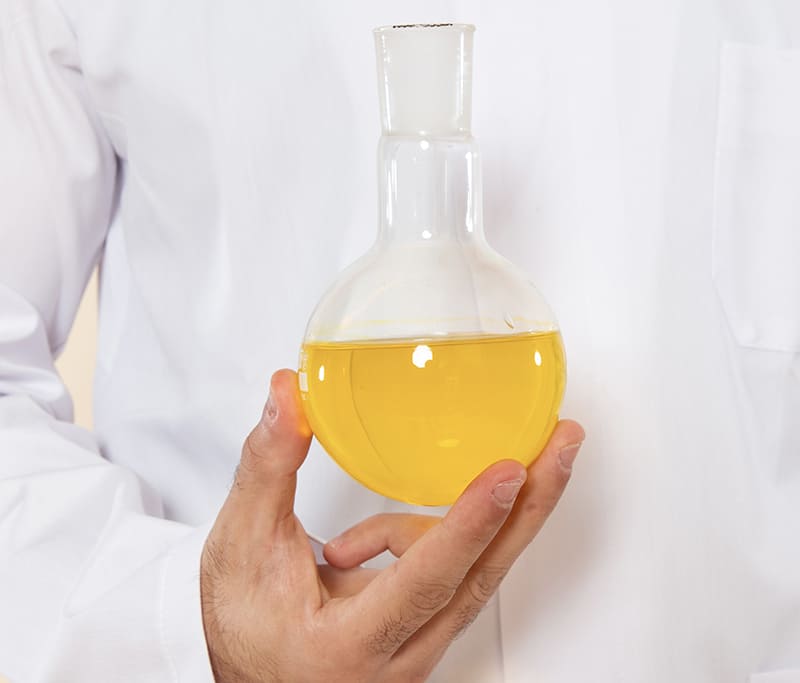Defoaming and anti-foaming chemicals are insoluble oils, poly-dimethyl siloxanes and other silicones, certain alcohols, stearates, and glycols. A proper defoaming chemical must have a low surface tension and spread rapidly along the gas-liquid interface, achieving maximum interaction with the foam. As the defoamer spreads in the medium, it must be capable of displacing the foam-stabilizing surface-active components and penetrating the foam’s lamellae to allow the entrapped gas to escape and the foam to burst.
Conventionally, defoamers are formulated around a carrier fluid, possibly a hydrocarbon, silicone oil, vegetable oil, synthetic polymer, etc. Active ingredients, which help spread or destabilize foam, can include waxes, metal salts, silicas, or other hydrophobic particles.







